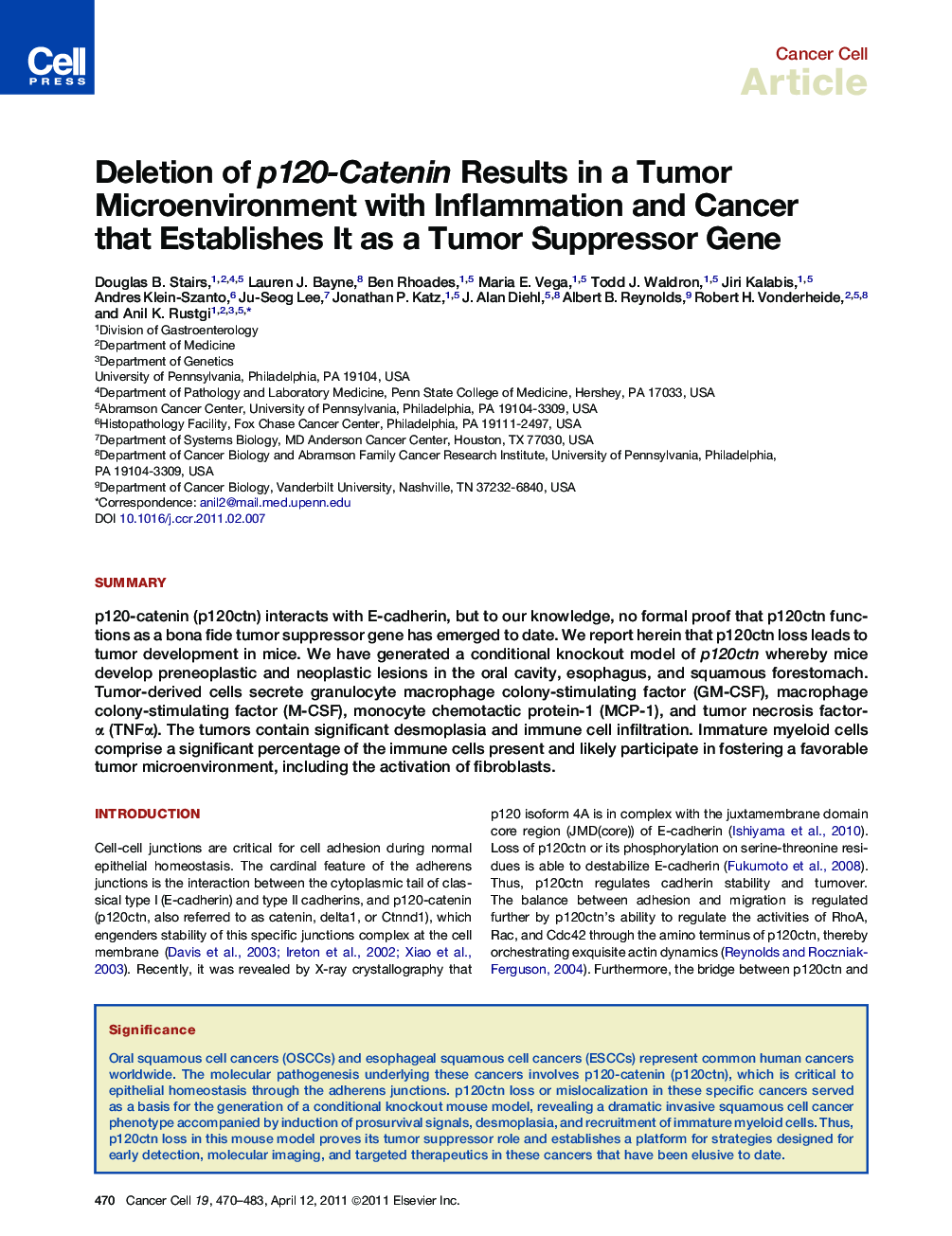| Article ID | Journal | Published Year | Pages | File Type |
|---|---|---|---|---|
| 2107536 | Cancer Cell | 2011 | 14 Pages |
Summaryp120-catenin (p120ctn) interacts with E-cadherin, but to our knowledge, no formal proof that p120ctn functions as a bona fide tumor suppressor gene has emerged to date. We report herein that p120ctn loss leads to tumor development in mice. We have generated a conditional knockout model of p120ctn whereby mice develop preneoplastic and neoplastic lesions in the oral cavity, esophagus, and squamous forestomach. Tumor-derived cells secrete granulocyte macrophage colony-stimulating factor (GM-CSF), macrophage colony-stimulating factor (M-CSF), monocyte chemotactic protein-1 (MCP-1), and tumor necrosis factor-α (TNFα). The tumors contain significant desmoplasia and immune cell infiltration. Immature myeloid cells comprise a significant percentage of the immune cells present and likely participate in fostering a favorable tumor microenvironment, including the activation of fibroblasts.
► p120ctn is lost or mislocalized in 100% of esophageal squamous cell cancers ► p120ctn loss in the mouse oral cavity and esophagus leads to squamous cancers ► p120ctn loss leads to E-cadherin loss and activation of NFκB, Akt, and Stat-3 ► Mouse-derived esophageal cancer cells secrete GM-CSF, M-CSF, MCP-1, and TNFα ► Coculture of immature myeloid cells and wild-type fibroblasts and cancer-associated fibroblasts results in the activation of these fibroblasts and leads to the reciprocal prolonged survival of the immature myeloid cells
